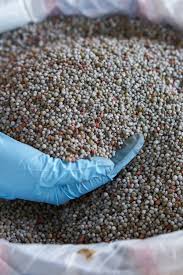
Nov . 19, 2024 18:02 Back to list
nitrogen organic fertilizer factory
The Role of Nitrogen in Organic Fertilizer Production A Comprehensive Overview
In the arena of sustainable agriculture, the use of organic fertilizers has gained significant traction, owing to their environmental benefits and effectiveness in enhancing soil fertility. Among the essential nutrients that organic fertilizers provide, nitrogen stands out as a critical component. Nitrogen, an essential macronutrient for plant growth, plays a pivotal role in various biological processes, making it a key focus for organic fertilizer factories. This article explores the production of nitrogen-rich organic fertilizers, the benefits they provide to plants and the environment, and the challenges faced in their production.
The Importance of Nitrogen
Nitrogen is a fundamental building block for amino acids, the precursors to proteins, and is crucial for synthesizing nucleic acids, which are necessary for cell division and the growth of new tissues. Plants absorb nitrogen mainly in the form of nitrates and ammonium. It facilitates photosynthesis and is involved in the development of chlorophyll, which gives plants their green color and is essential for harnessing sunlight to generate energy.
Organic fertilizers, derived from natural sources such as manure, compost, and plant residues, inherently contain some nitrogen. However, the concentration of nitrogen is often lower compared to synthetic fertilizers. This drives organic fertilizer factories to explore innovative methods to enhance nitrogen content while ensuring sustainability.
Production Methods of Nitrogen-Rich Organic Fertilizers
The process of producing nitrogen-rich organic fertilizers involves various methodologies. One prevalent approach is the fermentation of organic materials rich in nitrogen, such as leguminous plants or animal by-products. During fermentation, microorganisms break down organic matter, resulting in the release of nitrogen in a form that plants can readily absorb.
Another method involves the incorporation of nitrogen-fixing bacteria, such as Rhizobium or Azotobacter, into the fertilizer. These bacteria have the innate ability to convert atmospheric nitrogen into ammonia, which is subsequently transformed into nitrates, making it accessible to plants. By promoting the growth of these beneficial microbes, organic fertilizer factories can significantly boost the nitrogen content of their products.
Additionally, utilizing waste materials from agricultural practices, such as oilseed meals or green manures, can improve the nitrogen profile of organic fertilizers. Industrial waste, when processed correctly, can also serve as a valuable source of nitrogen, contributing to a circular economy in agricultural practices.
nitrogen organic fertilizer factory

Benefits of Nitrogen-Rich Organic Fertilizers
The application of nitrogen-rich organic fertilizers offers several advantages. Firstly, they improve soil health by enhancing its organic matter content, which in turn boosts water retention, aeration, and microbial activity. Healthy soils are fundamental to sustainable agriculture, as they support diverse ecosystems and resilient plant growth.
Moreover, because organic fertilizers release nutrients slowly over time, they minimize the risk of nutrient leaching into water bodies, which is a significant issue associated with synthetic fertilizers. By reducing nutrient runoff, nitrogen-rich organic fertilizers can help mitigate environmental pollution and preserve water quality.
Additionally, organic fertilizers promote biodiversity within the soil, fostering a habitat for beneficial organisms that contribute to nutrient cycling and pest control. This holistic approach supports the long-term sustainability of agricultural ecosystems.
Challenges in Production and Usage
Despite the benefits of nitrogen-rich organic fertilizers, there are challenges that must be addressed. The production process can be labor-intensive and requires careful management to prevent issues such as odor and pathogen proliferation. Furthermore, maintaining a consistent nitrogen content can be difficult due to variations in raw materials.
Additionally, the slow-release nature of nitrogen in organic fertilizers may not meet the immediate nutrient demands of high-yield crops, potentially leading farmers to rely on additional fertilizers, which can compromise the organic farming ethos.
Conclusion
The production of nitrogen-rich organic fertilizers represents a crucial intersection between agriculture and environmental stewardship. As organic fertilizer factories continue to innovate and improve their processes, the potential benefits for crop production and ecosystem health are immense. By harnessing the power of nitrogen through sustainable practices, we can enhance agricultural productivity while safeguarding the environment for future generations. The continued advancement in organic fertilizer technology will play an essential role in addressing the global challenges of food security and environmental preservation.
-
10-0-1 Organic Fertilizer High-Efficiency Plant Nutrition from Trusted Manufacturer & Supplier
NewsJul.04,2025
-
Top NPK Fertilizer Manufacturing Companies - Trusted Manufacturer, Supplier & Factory Worldwide
NewsJul.04,2025
-
Premium 8 12 16 Fertilizer – High-Efficiency Compound & Granular NPK Supplier
NewsJun.10,2025
-
High Quality Agricultural Grade NPK Fertilizer Manufacturer & Supplier Reliable Factory Price
NewsJun.10,2025
-
Organic Fertilizer for Corn Boost Yield Sustainably
NewsJun.10,2025
-
Organic Fertilizer for New Plants Natural Growth Boost & Eco Nutrients
NewsJun.10,2025
